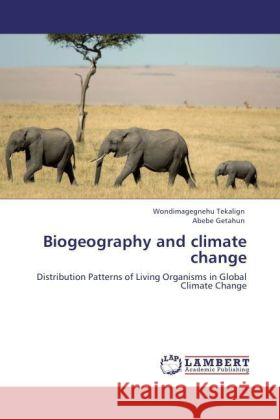Biogeography and climate change : Distribution Patterns of Living Organisms in Global Climate Change » książka
Biogeography and climate change : Distribution Patterns of Living Organisms in Global Climate Change
ISBN-13: 9783846552698 / Angielski / Miękka / 2011 / 64 str.
Biogeography is the study of the distribution patterns of organisms. It is a central premise of biogeography that climate exerts a dominant control over the natural distribution of species. The drifting apart of land masses brings about vicariance, where organisms are split up by the development of barriers, isolating descendent populations which then evolve to form new taxa. Climate changes over geological time, called paleoclimatology, are of considerable ecological interest because organisms have had to evolve along with such changes. Bioclimatic models are used to predict geographic ranges of organisms as a function of climate. Particularly, bioclimatic envelope models are currently widely used in broad scale species distribution modeling. The species show a variety of responses to climate change and thus their current habitat associations may alter. The future of biodiversity is highly dependent on dramatic reduction of greenhouse gases. The rapid global climate change threatens to alter the geographic distribution of many habitats and their component species. Conservation policy and practice will need to be revised in the face of climate change.











